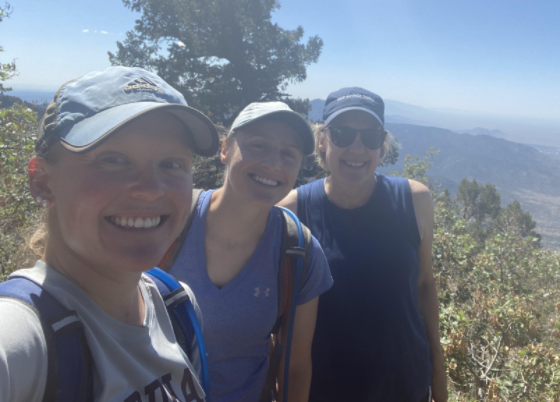
By Clare Donahue, Senior Analyst
My experience with breast cancer is one that many people likely share: my mother is a breast cancer survivor. What is less common about this story is that she was only 38 when diagnosed. Given that she was younger than the typical breast cancer patient and a new mom to my youngest sibling, the initial medical opinion was cavalier: given these facts, it was deemed that her lump was likely not cancerous. We were fortunate to have several doctors as family friends, and they urged her to seek a second opinion. The lump was not benign, but early detection yielded a positive outcome with no recurrences.
Fast forward 11 years, and my mom’s breast cancer was a fuzzy memory from my childhood. I was in high school when I first started to comprehend what the BRCA gene was and what it meant for my mom. She had known that she carried the BRCA-1 genetic mutation for a few years, which explained the unusually young breast cancer diagnosis, but for a long time, guidance was unclear on future preventive measures other than the yearly mammogram.
As time went on and more research was done, her gynecological oncologist urged her to consider removing her ovaries in a way that made my mom realize that she could not afford to wait: “I want you to imagine that you’re playing Russian Roulette with the gun already cocked to your head.”
 Her gyn-onc’s blunt insistence changed my mom’s mindset, and she scheduled surgery as a preventative measure, thinking it would be a quick and minimal operation. During the surgery, her doctors found ovarian cancer with minimal spread. She received six rounds of chemo, and a year later, had a double mastectomy, as her risk of having a completely separate recurrence of breast cancer was 40-70% due to her gene.
Her gyn-onc’s blunt insistence changed my mom’s mindset, and she scheduled surgery as a preventative measure, thinking it would be a quick and minimal operation. During the surgery, her doctors found ovarian cancer with minimal spread. She received six rounds of chemo, and a year later, had a double mastectomy, as her risk of having a completely separate recurrence of breast cancer was 40-70% due to her gene.
At this point, my mom, Carla, pictured here with me and my sister, Caroline, hiking the La Luz Trail in Albuquerque last summer, has been cancer-free for eight years!
I will always remember the laminated self-exam brochure that hung in my shower growing up. I take it for granted that I have those directions seared into my brain. More non-white women develop cancer at a more advanced stage, showing us that there are gaps in their preventive care.
My mom’s story was the catalyst for my desire to work within healthcare and at Aledade, and I continue to believe that our work makes a difference in our patient population through quality measures like mammogram screenings. But I also hope that our work has a ripple effect throughout the communities in which we are present, so that any late-stage diagnosis becomes history.

